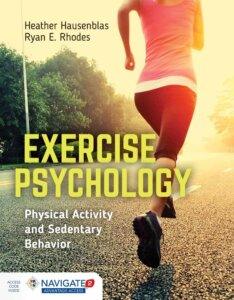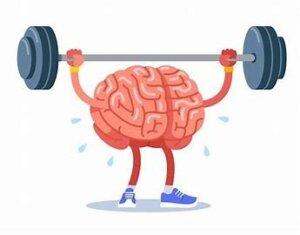Understanding Exercise Psychology: The Mind-Body Connection in Fitness
Exercise psychology is an intriguing field that delves into the mental and emotional dimensions of physical activity. It investigates how our psychological state influences our exercise habits and, conversely, how engaging in physical activity can enhance our mental well-being. In this blog post, we will explore the fundamental concepts of exercise psychology, its benefits, and practical ways to enrich your fitness journey.
The Importance of Exercise Psychology
Understanding exercise psychology is essential for grasping why people choose to engage in physical activity. This field examines the motivations that drive individuals to exercise, the obstacles they encounter, and the psychological rewards that come from regular physical activity. By gaining insight into these factors, fitness professionals can create more tailored programs that meet individual needs.

Motivation and Exercise
Motivation is a key focus in exercise psychology and can be categorized as either intrinsic or extrinsic. Intrinsic motivation stems from within, fueled by personal satisfaction and enjoyment, while extrinsic motivation is driven by external rewards, such as recognition or tangible incentives. Recognizing these different types of motivation can help individuals set achievable goals and maintain their commitment to exercise.
Goal Setting in Exercise
However, setting specific, achievable, measurable, relevant, and time-bound goals is necessary in exercise psychology. Goals provide direction and a sense of purpose, allowing individuals to track their progress and celebrate their achievements. Effective goal setting not only boosts motivation but also fosters a positive attitude toward exercise.
Barriers to Exercise
Despite the well-documented benefits of physical activity, many individuals face challenges that prevent them from exercising regularly. Common barriers include time constraints, lack of motivation, limited resources, and insufficient knowledge. However, understanding these obstacles is good for making different strategies to overcome them or maintain them. By identifying personal barriers, individuals can create customized plans that address their unique challenges.
The Role of Self-Efficacy
Additionally, self-efficacy refers to an workout person’s belief in their ability to succeed in specific and every situations. In the realm of exercise, higher self-efficacy is linked to greater persistence and effort. Those with strong self-efficacy are more likely to set ambitious goals and stay committed to their exercise routines. Building self-efficacy can be achieved through positive reinforcement, mastering skills, and receiving social support.
The Impact of Exercise on Mental Health
However, regular physical activity has a profound or good impact on everyone’s mental health. Exercise is known as the best reliever or reducer of anxiety and depression, and the release of endorphins, that is natural mood enhancers. Engaging yourself in different physical activities can also boost a person’s self-esteem and cognitive function. Recognizing these benefits can inspire individuals to incorporate exercise into their daily lives.
Social Support and Exercise
No doubt, social support or a group exercise community is a significant factor in maintaining an exercise routine with motivation. However, having a part of the fitness community or a workout partner can enhance or boost your motivation and accountability. Social interactions during exercise can make the experience more enjoyable and less isolating, fostering long-term commitment to physical activity.
Mindfulness and Exercise
Integrating mindfulness into exercise can elevate the overall experience. Mindful exercise encourages individuals to focus on their body’s sensations, thoughts, and feelings during physical activity, leading to greater enjoyment and improved mental well-being.

The Influence of Environment on Exercise Behavior
Moreover, the environment plays a great role in shaping exercise behavior. Access to safe and appealing spaces for physical activity can motivate individuals to engage in regular exercise. Factors such as weather, availability of facilities, and social norms can either encourage or hinder participation. Creating supportive environments is essential for fostering a culture of physical activity.
Exercise Adherence Strategies
Maintaining a consistent exercise routine can be challenging. Implementing effective adherence strategies is vital for long-term success. These strategies may include scheduling workouts, tracking progress, and discovering enjoyable activities. Additionally, varying routines can help prevent boredom and keep individuals engaged in their fitness journey.
The Role of Technology in Exercise Psychology
Technology has revolutionized how we approach exercise. Fitness apps, wearable devices, and online communities offer valuable resources for tracking progress and connecting with others. These tools can enhance motivation and accountability, making it easier for individuals to stay committed to their fitness goals.
The Future of Exercise Psychology
As the field of exercise psychology continues to evolve, researchers are exploring innovative ways to boost physical activity participation. Furthermore, Future studies may investigate the effects of gamification, virtual reality, and personalized fitness programs. Understanding the psychological aspects of exercise will remain crucial for promoting health and well-being across diverse populations.
Conclusion
Exercise psychology is a vital area of study that highlights the intricate relationship between the mind and body. By understanding the psychological factors that influence exercise behavior, individuals can develop effective strategies to enhance their fitness experiences. Focusing on motivation, goal setting, self-efficacy, and social support can lead to lasting changes in physical activity habits. As we continue to uncover the benefits of exercise on mental health, it becomes increasingly clear that a holistic approach to fitness is essential for overall well-being. Embracing the principles of exercise psychology can empower individuals to lead healthier, more active lives.











